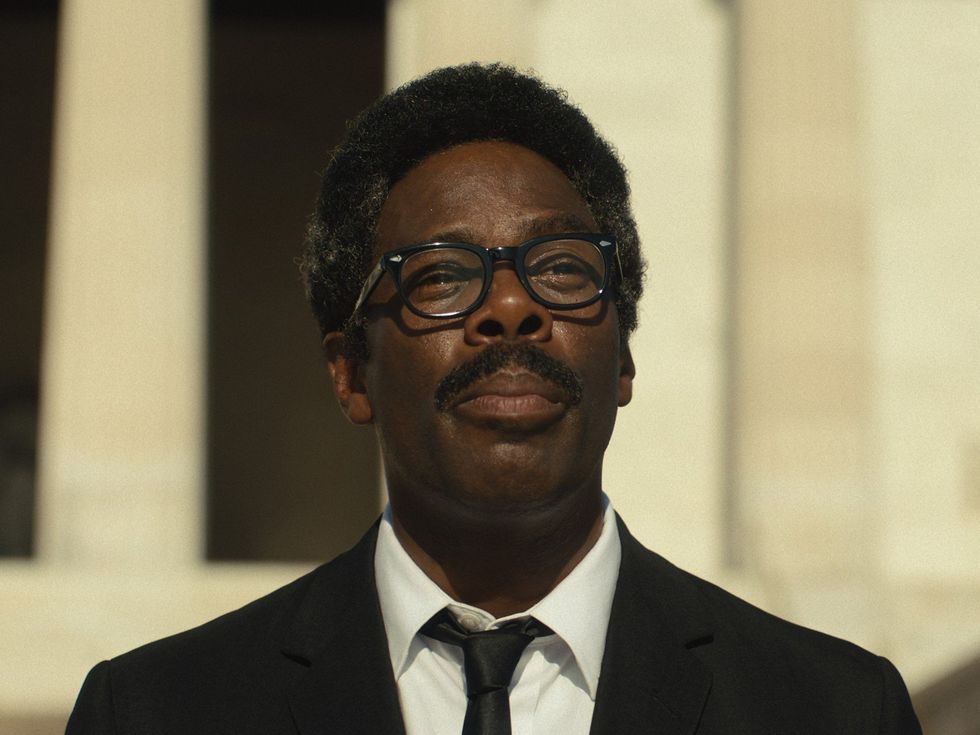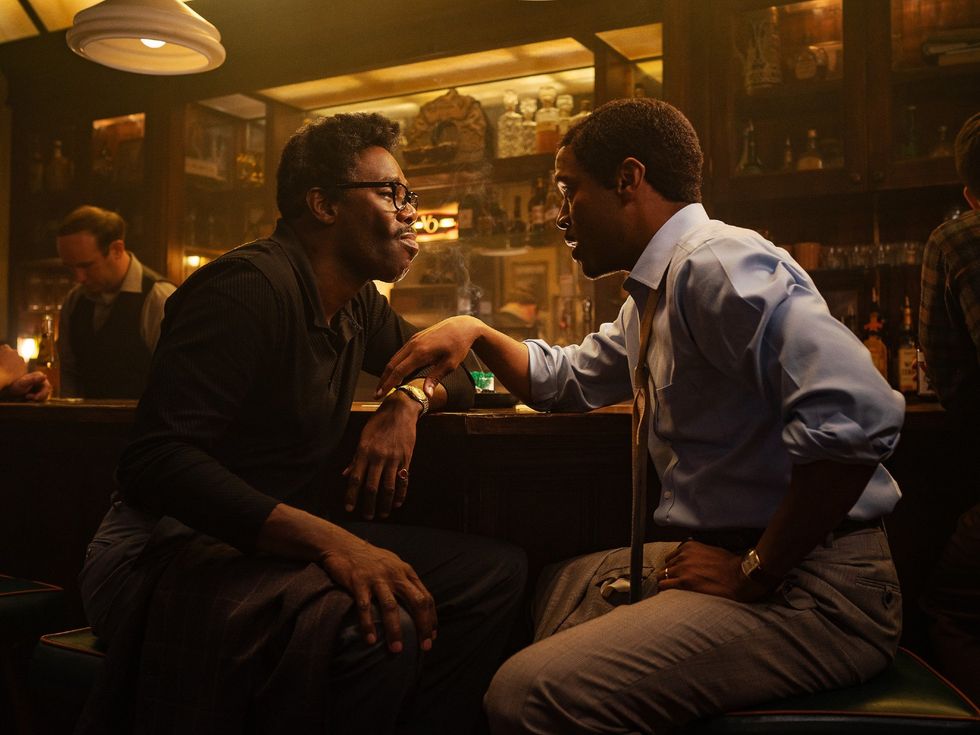Movie Review
Netflix film Rustin gives forgotten civil rights activist a deserved showcase
Certain people in the Civil Rights Movement of the 1950s and 1960s became so iconic that it’s easy to recall their names, people like Martin Luther King, Jr., Rosa Parks, and Medgar Evers. But others are not as well-known despite accomplishing monumental deeds, including Bayard Rustin, who was one of the co-organizers of 1963’s March on Washington.
The new film Rustinattempts to rescue his reputation from the dustbin of history by showing just how influential he was. The film tracks Rustin (Colman Domingo), who had been a leader in the movement for decades, as he tries to push fellow Black leaders to go beyond what they think is possible. An attempt to protest the 1960 Democratic National Convention puts him on the outs with the NAACP and others, but he persists.
When he revives the idea of a March on Washington – which he and A. Philip Randolph (Glynn Turman) attempted to organize in 1941 – he once again meets resistance, most notably from NAACP Executive Director Roy Wilkins (Chris Rock). But his friendship with King (Aml Ameen) – to whom he introduced the idea of non-violent protest – and his sheer tenacity keeps the project on track, a remarkable feat given that he was also having to hide the fact that he was gay from many, even those in his inner circle.
Directed by George C. Wolfe and written by Julian Breece and Dustin Lance Black, the film is a powerful take on the Civil Rights Movement from a perspective that rarely gets shown. The front-facing people like King, Wilkins, and Rep. Adam Clayton Powell, Jr. (Jeffrey Wright) get a lot of the credit, but the grunt work, especially for the march, was being done by Rustin and his group of both Black and white volunteers.
Unlike Rustin was forced to do, the filmmakers don’t hide Rustin’s gayness, although they do acknowledge the difficulty that came with being gay in the early ‘60s. Rustin knows just where to go in his private time to be able to live relatively openly, but relationships are tricky, whether it’s with Tom (Gus Halper), his partner/work assistant, or Elias Taylor (Johnny Ramey), a married man in the movement with whom he has an affair.
The struggles in both sides of his life complement each other, as Rustin had to fight tooth and nail against racists, homophobes, and powerful people in the movement. Wolfe and his team keep the film from becoming too grim by utilizing fast-paced editing and, often, a jazzy score that fits with the against-all-odds mission Rustin is trying to accomplish.
Domingo, who’s been an actor on the rise in recent years, knocks the lead role out of the park. Utilizing a distinctive voice and never-back-down attitude, he is everything the role needed and more. The rest of cast is mix between notable Black actors like Rock, Wright, Turman, and CCH Pounder to go with lesser knowns like Ameen, Ramey, and Michael Potts to make for a potent acting crew.
The events in Rustin happened 60 years ago, but its story is as resonant as ever, especially because it gives us a new view on a famous moment. Bayard Rustin may not have spoken at the March on Washington, but this film teaches us that he was as responsible as anyone for cementing its place in the history books.
---
Rustin opens in select theaters on November 3; it will debut on Netflix on November 17.



